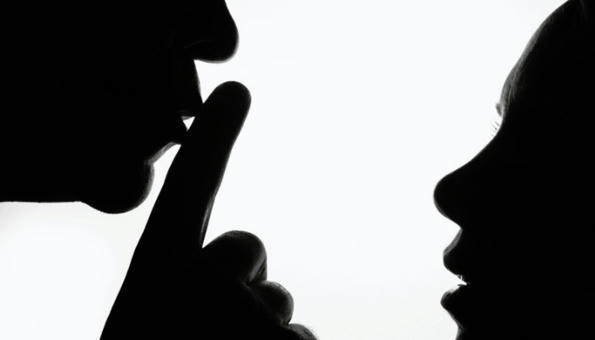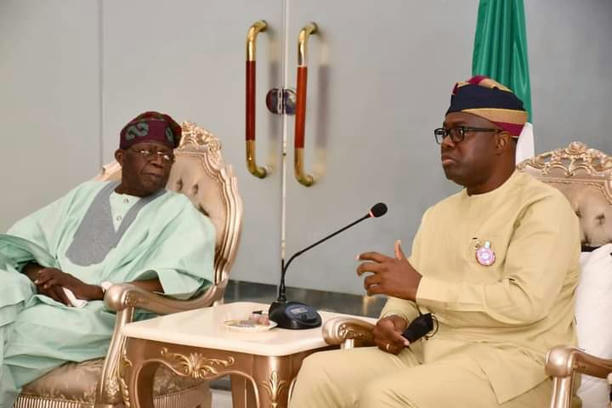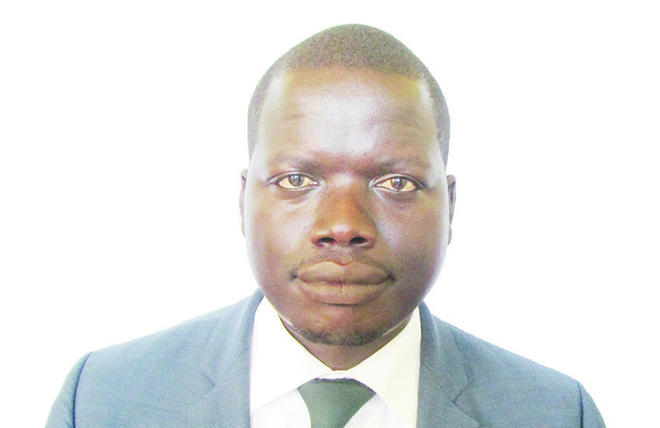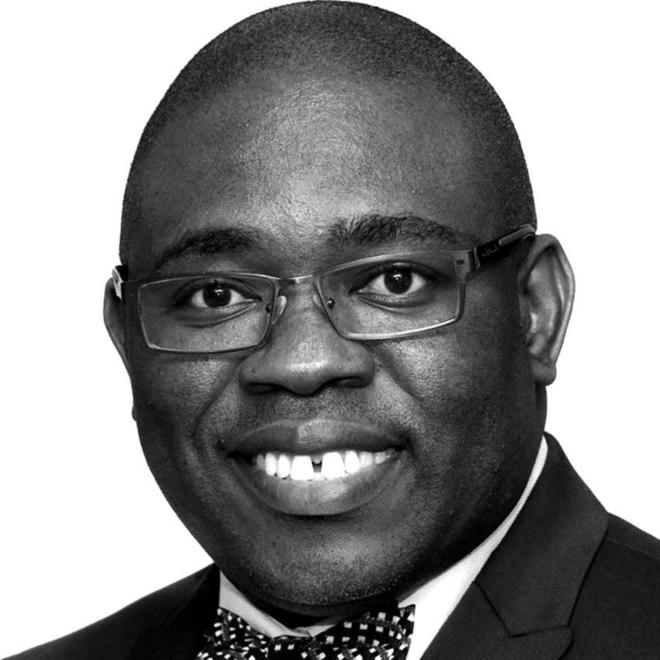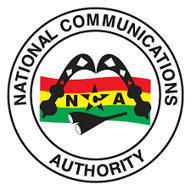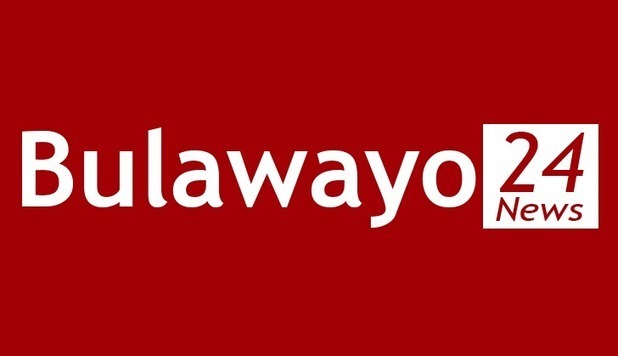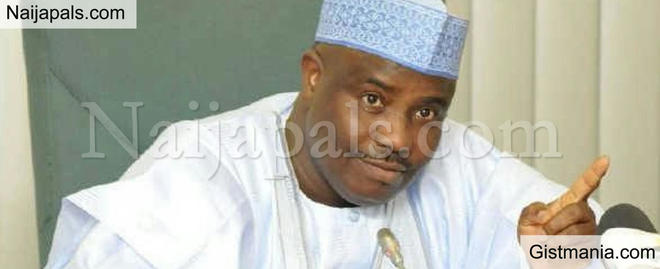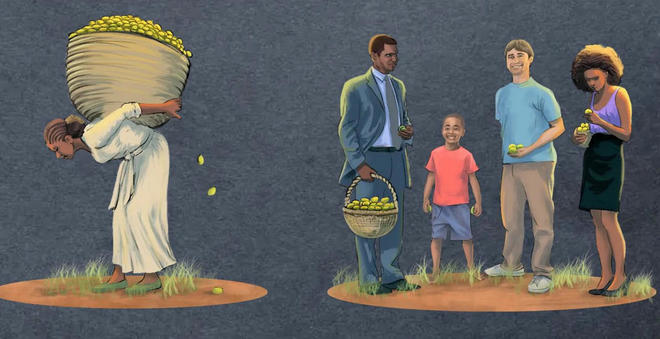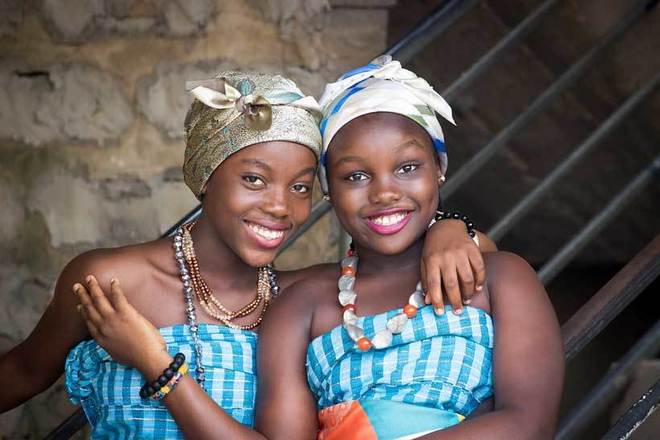
“When you educate a girl, you educate a nation.” This African proverb resonates with the values passed on to me by my parents and guides my determination to drive change in the region through the education and empowerment of girls and women. Adolescence is a critical tipping point in the lives of many girls. Decisions made for them at this age can have life-long implications for their health, skills, economic opportunities, voice, and personal agency. Far too often, choices are made that set-in motion a disadvantage for these girls that will persist throughout their entire lives. A multitude of factors throughout a woman’s life cycle often combines to prevent them from realizing their potential: high fertility rates, early marriages and inadequate access to family planning services, low educational attainment, weak job opportunities, and restrictive social norms and laws. Over the past decade, countries across Western and Central Africa have made considerable progress in accelerating gender equality, promoting girls’ education, championing legal reforms, improving livelihood opportunities, and developing more inclusive financial systems. The recently released Women, Business and the Law report 2023 highlights the significant progress made by the region in the last year, with five economies—Benin, the Republic of Congo, Côte d’Ivoire, Gabon, and Senegal —enacting positive legal changes. Notably, Côte d’Ivoire and Gabon recently lifted all legal restrictions on women’s employment.
Charles Tiayon:
"“When you educate a girl, you educate a nation.” This African proverb resonates with the values passed on to me by my parents and guides my determination to drive change in the region through the education and empowerment of girls and women. Adolescence is a critical tipping point in the lives of many girls. Decisions made for them at this age can have life-long implications for their health, skills, economic opportunities, voice, and personal agency. Far too often, choices are made that set-in motion a disadvantage for these girls that will persist throughout their entire lives. A multitude of factors throughout a woman’s life cycle often combines to prevent them from realizing their potential: high fertility rates, early marriages and inadequate access to family planning services, low educational attainment, weak job opportunities, and restrictive social norms and laws. Over the past decade, countries across Western and Central Africa have made considerable progress in accelerating gender equality, promoting girls’ education, championing legal reforms, improving livelihood opportunities, and developing more inclusive financial systems. The recently released Women, Business and the Law report 2023 highlights the significant progress made by the region in the last year, with five economies—Benin, the Republic of Congo, Côte d’Ivoire, Gabon, and Senegal —enacting positive legal changes. Notably, Côte d’Ivoire and Gabon recently lifted all legal restrictions on women’s employment." #metaglossia mundus
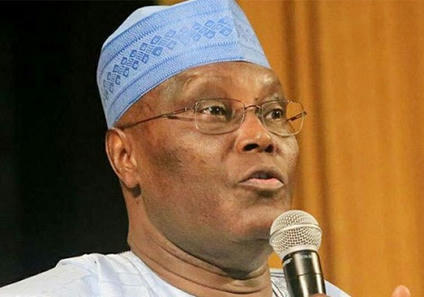
There is a Yoruba adage, which says that ‘ogbon odun yii, were emii ni.’ (The wisdom of this year is foolishness in the course of time). Talking philosophically, when one relies on an older matrix to work in the present, one’s failure is likely to be like Atiku Abubakar’s. Why? The dynamics of the present may certainly not be exactly the same with the past. In fairness to posterity, the mindset of the Peoples’ Democratic Party (PDP) and, of course, its presidential candidate – as Nigeria approached the last presidential election – was that the North was still the (typical) North and that the Southerners would still be the stereotype Southerners and behave in conformity with political permutations and expectations. But certain dynamics like religion; the hitherto little-known Peter Obi and his Igbo clannish sentiment (which Atiku did not bargain for); the resentment of the old order, especially, those who got disenchanted with the ruling All Progressives Congress (APC) and those who were tired of the PDP’s circular run and misfortune), were some of those things the 7th ‘Waziri of Adamawa Emirate’ did not see coming; but they showed up!
Charles Tiayon:
" There is a Yoruba adage, which says that ‘ogbon odun yii, were emii ni.’ (The wisdom of this year is foolishness in the course of time). Talking philosophically, when one relies on an older matrix to work in the present, one’s failure is likely to be like Atiku Abubakar’s. Why? The dynamics of the present may certainly not be exactly the same with the past. In fairness to posterity, the mindset of the Peoples’ Democratic Party (PDP) and, of course, its presidential candidate – as Nigeria approached the last presidential election – was that the North was still the (typical) North and that the Southerners would still be the stereotype Southerners and behave in conformity with political permutations and expectations. But certain dynamics like religion; the hitherto little-known Peter Obi and his Igbo clannish sentiment (which Atiku did not bargain for); the resentment of the old order, especially, those who got disenchanted with the ruling All Progressives Congress (APC) and those who were tired of the PDP’s circular run and misfortune), were some of those things the 7th ‘Waziri of Adamawa Emirate’ did not see coming; but they showed up!" #metaglossia mundus
When you’re newly married, bringing your financial lives together and creating a secure future is vital. However, it’s also hard to figure out where to begin or ensure you avoid critical missteps. Fortunately, that journey is easier with guidance. Here are some of the best financial quotes for newlyweds and what they can mean. If you marry a monkey for his wealth, the money goes, but the monkey remains as-is. Originating from an Egyptian proverb, this quote discusses the folly of getting into a relationship for purely financial gain, even if you don’t love, respect, or like the person. Additionally, even if there is love, if money is a factor in that feeling, it points out that money can be fleeting, but the person remains. Essentially, it’s a reminder to make sure you’re in a relationship for the right reasons. Material possessions – including money – may not last forever, so it’s best to have other priorities when you marry.
Charles Tiayon:
"When you’re newly married, bringing your financial lives together and creating a secure future is vital. However, it’s also hard to figure out where to begin or ensure you avoid critical missteps. Fortunately, that journey is easier with guidance. Here are some of the best financial quotes for newlyweds and what they can mean. If you marry a monkey for his wealth, the money goes, but the monkey remains as-is. Originating from an Egyptian proverb, this quote discusses the folly of getting into a relationship for purely financial gain, even if you don’t love, respect, or like the person. Additionally, even if there is love, if money is a factor in that feeling, it points out that money can be fleeting, but the person remains. Essentially, it’s a reminder to make sure you’re in a relationship for the right reasons. Material possessions – including money – may not last forever, so it’s best to have other priorities when you marry." #metaglossia mundus
The sexual abuse and exploitation of children is a violation of human social and legal rights and has become one of the major straws that broke the camel’s back over the decades with significant consequences for global health and development. While we cannot dismiss the massive social awareness and media campaigns that are currently ongoing towards the eradication of this social menace, it is noteworthy that there is a dearth of campaigns on how strenuous organisation work and imbalance of work-family life can contribute to the sexual abuse of children. As often expressed in the popular aphorism, “an idle mind is the devil’s workshop”. This is in consonance with the popular Yoruba proverb: “Ise la fi n segun ise” (work is the antidote of poverty). Thus, diligence and hardwork are
Charles Tiayon:
"The sexual abuse and exploitation of children is a violation of human social and legal rights and has become one of the major straws that broke the camel’s back over the decades with significant consequences for global health and development. While we cannot dismiss the massive social awareness and media campaigns that are currently ongoing towards the eradication of this social menace, it is noteworthy that there is a dearth of campaigns on how strenuous organisation work and imbalance of work-family life can contribute to the sexual abuse of children. As often expressed in the popular aphorism, “an idle mind is the devil’s workshop”. This is in consonance with the popular Yoruba proverb: “Ise la fi n segun ise” (work is the antidote of poverty). Thus, diligence and hardwork are..."
An Igbo proverb says that “uwa bu ahia” and a simplistic translation is that the world is a market. And in Harvard Business Review, I proclaimed “Africa is open for business” in a well-received piece (read here ). Good People, Tekedia Institute Investment and Portfolio Management program is for you. Join us and let us master how to do business and invest in this world. Go here and register for the weeks-long program. Tekedia Investment and Portfolio Management program is designed to provide learners with hands-on experience in performing investment research, investing capital, and managing a portfolio during studies in Tekedia Institute. …
Charles Tiayon:
"An Igbo proverb says that “uwa bu ahia” and a simplistic translation is that the world is a market. And in Harvard Business Review, I proclaimed “Africa is open for business” in a well-received piece (read here ). Good People, Tekedia Institute Investment and Portfolio Management program is for you. Join us and let us master how to do business and invest in this world. Go here and register for the weeks-long program. Tekedia Investment and Portfolio Management program is designed to provide learners with hands-on experience in performing investment research, investing capital, and managing a portfolio during studies in Tekedia Institute. …" #metaglossia mundus
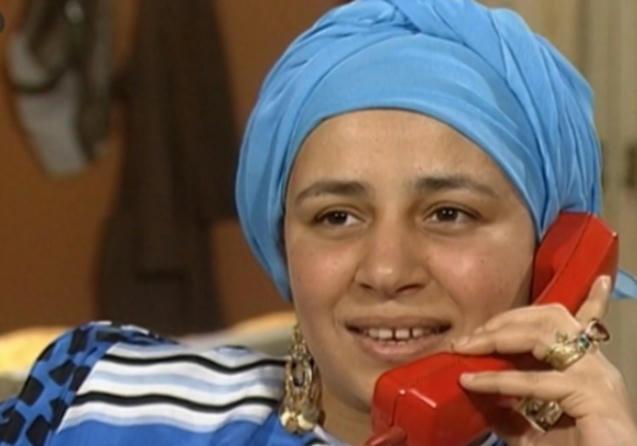
Egyptians are known for a lot of things; whether it is witty humor or the ability to make light out of serious situations, another favorite is the cool proverbs and sayings used casually without question. Some can be quite funny and peculiar but the best thing is that they act as a connection between the community. So with that, let’s take a look at some of these popular Egyptian sayings and the deeper meaning behind each one. Howa ana batkalem hindi? (Am I speaking Hindi?) This one may be the only saying that actually has a bit of sense to it. It translates to “am I talking Hindi?'” It’s used when two people are having a discussion and the other one is struggling to understand what is being said and so out of frustration, the person who is explaining would say “am I talking Hindi?” This saying is often used in those common hilarious moments of misunderstanding between people. Khalty w khaltak etfara’o el khalat (My auntie and uncle got separated, we’re going our separate ways ) This saying has a sort of science fiction element to it because if we take its literal translation, it would mean “my auntie and your uncle got separated into more aunties and uncles.” In simple terms, despite the saying sounding quite absurd, it does have a simple meaning of describing a scenario wherein two people end up cutting ties. Yama gab el ghorab l omo (The crow has been taken to his mom many times) This one is interesting as its literal translation doesn’t make sense; “the crow has been taken to his mum many times.” It does have a simple meaning though, the crow, a bird with bad PR is thought to be always up to no good and so once a crow always a crow. Though the saying currently holds a bad repetition, its actual origin is researchers finding crows hiding unessential things like broken mirrors and storing it next to their mothers. Aaleb el edra ala fomaha tetlaa el bet lomaha (Like Mother, Like Daughter) This rhythmical tongue twister uses a touch of imagery to express its main message. If we translate it word by word, it translates to “flip the well on its face and the daughter will look like her mother.” In simple terms, it means “like mother, like daughter.” It’s used whenever anyone would feel that a mum and daughter are very similar, even if they both deny it. The saying originated eons ago when a mother and daughter went to a seer and she was mixing rocks and sand together resulting in two rocks resembling each other, leading the seer to tell the mother that her daughter will be like her. Law leek haga aand el kalb olo ya side (If you need something from a dog, call them master) This is one of the proverbs that have some logical sense to it. Bear with us while we spell it out for you: ‘If you need something from a dog, refer to him as your master.’ This means you must bend over backward if you need something from someone who is difficult, perhaps a boss, or an enemy. So when we go to the extremity of the dog, the phrase is meant to indicate that even in the worst of matters, we must still go against ourselves to get something done. The origin of this proverb is interesting as way back Arabs perceived colonizers as dogs and when they wanted to convince them of something, they would refer to them as masters, leading to the widely popular saying If you need something from a dog, refer to him as your master to be used today. El erd f 3en omo ghazal (The monkey is a deer in their mother’s eyes) Every Egyptian knows this one, and we use it more often than not so let’s first go through its literal translation: “the monkey is a deer in his mother’s eyes.” In the saying, by comparing an ‘ugly’ animal to a ‘pretty’ one, it is referring to how to a parent, their child will always be perceived as beautiful, inside and out, even if others do not see them as such. It’s been said that this particular saying dates back to the Roman times when Greek god, Jupiter held a beauty contest for animals and when a monkey paraded her son around saying he’s beautiful and everyone mocked them, it was only then that she said, “the monkey is a deer in his mother’s eyes.” Law habibak 3assal matelhashoosh kolo (If your lover is made of honey, don’t lick it all) This is one of our favorite proverbs, and its literal meaning so eloquently matches with its figurative one. ‘If your lover is made of honey, don’t lick them all.’ Meaning don’t take advantage of someone’s kindness and appreciate what you get. We are directing this message at Ramadan from “Family Matters” as he is the kind of character that needs to learn to appreciate the kindness of his pure and amazing wife Zeinab. It is clear that most of these proverbs either don’t make sense, are absurdly linked to a certain meaning, or are just there for a good laugh. In all cases, they hold a special place in every Egyptian’s sense of identity. Despite their ridiculousness, we would not have them any other way. A passionate writer keen on exploring ideas through the power of words. Leila loves philosophy and any subject that enables her to challenge her mind. She hopes to make a difference in the field of mental health in Egypt through her pursuit of psychology as a degree, as well as staying
authentic through her writing.
Charles Tiayon:
Egyptians are known for a lot of things; whether it is witty humor or the ability to make light out of serious situations, another favorite is the cool proverbs and sayings used casually without question. Some can be quite funny and peculiar but the best thing is that they act as a connection between the community. So with that, let’s take a look at some of these popular Egyptian sayings and the deeper meaning behind each one. Howa ana batkalem hindi? (Am I speaking Hindi?) This one may be the only saying that actually has a bit of sense to it. It translates to “am I talking Hindi?'” It’s used when two people are having a discussion and the other one is struggling to understand what is being said and so out of frustration, the person who is explaining would say “am I talking Hindi?” This saying is often used in those common hilarious moments of misunderstanding between people. Khalty w khaltak etfara’o el khalat (My auntie and uncle got separated, we’re going our separate ways ) This saying has a sort of science fiction element to it because if we take its literal translation, it would mean “my auntie and your uncle got separated into more aunties and uncles.” In simple terms, despite the saying sounding quite absurd, it does have a simple meaning of describing a scenario wherein two people end up cutting ties. Yama gab el ghorab l omo (The crow has been taken to his mom many times) This one is interesting as its literal translation doesn’t make sense; “the crow has been taken to his mum many times.” It does have a simple meaning though, the crow, a bird with bad PR is thought to be always up to no good and so once a crow always a crow. Though the saying currently holds a bad repetition, its actual origin is researchers finding crows hiding unessential things like broken mirrors and storing it next to their mothers. Aaleb el edra ala fomaha tetlaa el bet lomaha (Like Mother, Like Daughter) This rhythmical tongue twister uses a touch of imagery to express its main message. If we translate it word by word, it translates to “flip the well on its face and the daughter will look like her mother.” In simple terms, it means “like mother, like daughter.” It’s used whenever anyone would feel that a mum and daughter are very similar, even if they both deny it. The saying originated eons ago when a mother and daughter went to a seer and she was mixing rocks and sand together resulting in two rocks resembling each other, leading the seer to tell the mother that her daughter will be like her. Law leek haga aand el kalb olo ya side (If you need something from a dog, call them master) This is one of the proverbs that have some logical sense to it. Bear with us while we spell it out for you: ‘If you need something from a dog, refer to him as your master.’ This means you must bend over backward if you need something from someone who is difficult, perhaps a boss, or an enemy. So when we go to the extremity of the dog, the phrase is meant to indicate that even in the worst of matters, we must still go against ourselves to get something done. The origin of this proverb is interesting as way back Arabs perceived colonizers as dogs and when they wanted to convince them of something, they would refer to them as masters, leading to the widely popular saying If you need something from a dog, refer to him as your master to be used today. El erd f 3en omo ghazal (The monkey is a deer in their mother’s eyes) Every Egyptian knows this one, and we use it more often than not so let’s first go through its literal translation: “the monkey is a deer in his mother’s eyes.” In the saying, by comparing an ‘ugly’ animal to a ‘pretty’ one, it is referring to how to a parent, their child will always be perceived as beautiful, inside and out, even if others do not see them as such. It’s been said that this particular saying dates back to the Roman times when Greek god, Jupiter held a beauty contest for animals and when a monkey paraded her son around saying he’s beautiful and everyone mocked them, it was only then that she said, “the monkey is a deer in his mother’s eyes.” Law habibak 3assal matelhashoosh kolo (If your lover is made of honey, don’t lick it all) This is one of our favorite proverbs, and its literal meaning so eloquently matches with its figurative one. ‘If your lover is made of honey, don’t lick them all.’ Meaning don’t take advantage of someone’s kindness and appreciate what you get. We are directing this message at Ramadan from “Family Matters” as he is the kind of character that needs to learn to appreciate the kindness of his pure and amazing wife Zeinab. It is clear that most of these proverbs either don’t make sense, are absurdly linked to a certain meaning, or are just there for a good laugh. In all cases, they hold a special place in every Egyptian’s sense of identity. Despite their ridiculousness, we would not have them any other way. A passionate writer keen on exploring ideas through the power of words. Leila loves philosophy and any subject that enables her to challenge her mind. She hopes to make a difference in the field of mental health in Egypt through her pursuit of psychology as a degree, as well as staying
authentic through her writing." #metaglossia mundus
"Should another Fulani man from the north continue as president after eight years of the administration of President Mohammadu Buhari, what advantage will Oyo state gain? A Yoruba adage says “teni teni, ti akisa ni a tan”. Meaning that what is yours is yours, and rag belongs to the dump. Reminiscent of the last Saturday poll results in Oyo state, the victory of Asiwaju Ahmed Bola Tinubu in Oyo state is a combination of Makinde’s groundwork who loves and prioritizes the southwest region over his political affiliation." #metaglossia mundus
Charles Tiayon:
"Should another Fulani man from the north continue as president after eight years of the administration of President Mohammadu Buhari, what advantage will Oyo state gain? A Yoruba adage says “teni teni, ti akisa ni a tan”. Meaning that what is yours is yours, and rag belongs to the dump. Reminiscent of the last Saturday poll results in Oyo state, the victory of Asiwaju Ahmed Bola Tinubu in Oyo state is a combination of Makinde’s groundwork who loves and prioritizes the southwest region over his political affiliation." #metaglossia mundus
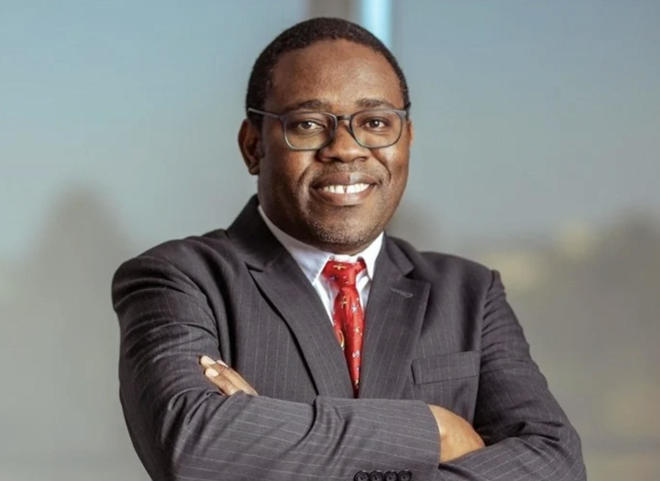
The former president of Ghana, John Mahama, once declared that Africa needs a “fair chance”. In the aftermath of the pandemic, Africa is again scrambling for solutions to some of the most pressing questions of our time. In recent history, substantial setbacks have occurred: the pandemic, global upheaval, warring factions and external shocks. A recent African Development Bank report on the continent’s macroeconomic outlook suggests room for cautious optimism. As African Union Commission chairperson Moussa Faki Mahamat said in response to the report, “knowledge is power”. As we rebuild our economies, structures and systems, there is an argument to be made that our approach should be uniquely and distinctly African. One might ask: what is the source of inspiration for leadership? I would argue that African culture and African approaches are an important facet. Indeed, there are lessons to be learnt from African idiomatic expressions – phrases we often repeat to ourselves and put into practice without realising it. As Achille Mbembe reminds us: “Africans have an authentic culture that confers on them a peculiar self irreducible to that of any other group.” If this source of knowledge is indeed an authentically African approach to leadership, what lessons can be learnt? In recent years, I have spent much time sourcing, translating and grouping these expressions. These uniquely African expressions have been a constant source of referral for me in my own leadership journey. There are 10 leadership lessons we can consider that provide a framework for the emergence of strong but authentically African leaders. Many hands… First, leadership is not a solitary undertaking. It is important to emphasise teamwork. The concept of letsema, for instance, is a culturally embedded practice used to pool resources and share common risks or perform a particular task. It represents people coming together to tackle challenges. As the saying goes, “tsie e senya ka bontsi” – more hands make the job easier. This sentiment finds parallels in Afrikaans – “baie hande maak ligte werk”’ and in English, “many hands make light work”. Leadership requires this fundamental ability to work cooperatively with others to achieve objectives. This is how leaders make strides – acknowledging that we should not and cannot work in silos. Power Second, we must be mindful of the power bestowed on leaders and how we positively harness this. “Bogosi boa toga” – kingship is often intoxicating. In post-colonial Africa, the emergence of despots and the infiltration of corruption have been apparent. In South Africa, State Capture still starkly presents itself as we grapple with structural and systemic deficits and the syphoning of resources. Al Jazeera once referred to corruption in Africa as the continent’s undeclared pandemic. As Voltaire said, “with great power comes great responsibility”. As leaders step into positions of power, with the accompanied influence, they must do so honestly and ethically. We must not be distracted by the lure of these “intoxicating” forces. This leads me to my next point. Trust Third, leaders have to demonstrate honesty and integrity. “Kgomo a tshwarwa ka dinaka. Motho o tshwarwa ka leleme” – when you want to catch an ox, you catch it by the horns. But you catch a person by his sayings. Lefoko ga le boe go boa monwana – it is not the what, but the how that can make or break you. This is how leaders garner trust and deliver on their promises. Leaders have to be transparent and honest. We cannot simply make promises, we have to be held accountable to ensure that we are working towards realising these promises. Leadership Fourth, we must never forget that we are leading for others. At the University of Johannesburg (UJ), for instance, an important exercise in preparation for taking up my role as vice-chancellor has been understanding the demographics and the needs of our staff and students. “Kgosi ke kgosi ka setshaba” – a king is a king through the will of the people. Read in Daily Maverick: “AI is rolling out at science fiction speed — ethics and the law must keep pace” As leaders, our responsibility is always to our contingent, which must guide our approach, understanding and decision-making. In the past week I have hosted vice-chancellor engagements on our various campuses. This has allowed me to introduce myself to our staff and students, provide an overview of the way forward and allow the UJ community to give the leadership feedback, voice their concerns and ask questions. It was a stark reminder of who we serve as leaders. Wisdom Fifth, it is imperative to lead from a place of wisdom. “Bothale ga bona ntlo ya jone” – wisdom has no boundaries. The African proverb, “wisdom is like a baobab tree, you cannot embrace it alone”, is a reminder that teamwork and wisdom are indispensable in leadership. Leadership requires a culture of continuous learning. This is how we create better and stronger leaders. As I stepped into my role as deputy vice-chancellor in 2021, I was encouraged to do a management course through the Saïd Business School at Oxford University. Visit Daily Maverick’s home page for more news, analysis and investigations Additionally, in the Fourth Industrial Revolution (4IR), we must ensure that we have a diverse range of skills to adapt to the future world of work. This allows us to remain relevant and emerge as stronger and better leaders. The right approach Sixth, leadership approaches are essential. “Lefoko ga le boe go boa monwana” – it is not the what, but the how that can make or break you. This sentiment can be applied to nations, organisations, departments and even individual relationships. The approach to implementing plans, motivating people and providing direction determines what will be achieved. This process is integral and determines what kind of leader you will be. Our achievements would not be worthy of celebration if we did not ensure that our approach was honest, ethical and true to our ethos. Mentorship Seventh, leaders should be mentors. “Rutang bana ditaola le seye le tšona badimong” – the elders should not die with their skills or knowledge. At UJ, we have a unique approach to the transition and handover process. In the months since the announcement of my appointment, I stepped into the role of vice-chancellor designate, where I spent a great deal of time learning from my predecessor, Professor Tshilidzi Marwala. This is quite a remarkable process that UJ has implemented. Read in Daily Maverick: “Universities fight to keep campuses safe in the face of rising crime threats” During this time I began to get a real sense of the foundations and structures that make up the institution. In fact, studies have found that leadership mentoring improves retention rates and job satisfaction. Throughout my career, I have learnt a great deal from mentors who have informed my leadership approach. This is a practice we should instil in the leadership process. Courage Eighth, leaders must lead from a place of courage and bravery. “Pelo tshweu e ntsha lobelo” – there is satisfaction with bravery. Importantly, leaders must not lead from a place of fear. They must have conviction and be prepared to make difficult decisions that will produce better outcomes. Courage and bravery are preconditions for taking risks and achieving greatness. Desire to try Ninth, leaders must demonstrate a willingness to try new things. “Phokoje go tishela yo o dithetsenyana” – victors are those who show a desire to try. At UJ, for instance, many have dismissed our 4IR rhetoric in recent years. Yet, our rise through the rankings and research metrics indicates that this willingness to adopt a new approach has paid off. As the pandemic hit South Africa and our way of living, working and learning had to go online, this approach to the 4IR informed our response. Our willingness to try new things ensured that we were the first higher education institution to complete the academic year on time in 2020. Lesson from a mosquito Finally, leaders should not be hamstrung by an inferiority complex. As the African proverb goes, “if you think you are too small to make a difference, you haven’t spent a night with a mosquito”. Leadership is defined by the traits one demonstrates. One is never too small or young to emerge as a strong leader. UJ, for instance, is a relatively young university. Although it is made up of historical institutions, it was only formed in 2005. UJ came into being as part of the massive restructuring of the higher education landscape initiated by the Department of Education. We have not let our emergence as a young institution define our trajectory. We have risen in the rankings and demonstrated our strength and commitment to innovation through our research metrics. Importantly, we have broken barriers through our belief and conviction in ourselves. As we emerge as African leaders, we must ensure that we do so with an African approach. We no longer have to impose structures, systems and approaches that do not work or make sense in our own context. We can instil many leadership practices from African idiomatic expressions, proverbs and fables. There are lessons to be learnt from the very sayings and stories we grew up with. This has informed much of my own leadership journey and is a source of continuous referral and inspiration. As Rwandan President Paul Kagame reminds us: “Africa’s story has been written by others; we need to own our problems and solutions and write our story.” ******* Professor Letlhokwa George Mpedi is the Vice-Chancellor and Principal of the University of Johannesburg
Charles Tiayon:
"The former president of Ghana, John Mahama, once declared that Africa needs a “fair chance”. In the aftermath of the pandemic, Africa is again scrambling for solutions to some of the most pressing questions of our time. In recent history, substantial setbacks have occurred: the pandemic, global upheaval, warring factions and external shocks. A recent African Development Bank report on the continent’s macroeconomic outlook suggests room for cautious optimism. As African Union Commission chairperson Moussa Faki Mahamat said in response to the report, “knowledge is power”. As we rebuild our economies, structures and systems, there is an argument to be made that our approach should be uniquely and distinctly African. One might ask: what is the source of inspiration for leadership? I would argue that African culture and African approaches are an important facet. Indeed, there are lessons to be learnt from African idiomatic expressions – phrases we often repeat to ourselves and put into practice without realising it. As Achille Mbembe reminds us: “Africans have an authentic culture that confers on them a peculiar self irreducible to that of any other group.” If this source of knowledge is indeed an authentically African approach to leadership, what lessons can be learnt? In recent years, I have spent much time sourcing, translating and grouping these expressions. These uniquely African expressions have been a constant source of referral for me in my own leadership journey. There are 10 leadership lessons we can consider that provide a framework for the emergence of strong but authentically African leaders. Many hands… First, leadership is not a solitary undertaking. It is important to emphasise teamwork. The concept of letsema, for instance, is a culturally embedded practice used to pool resources and share common risks or perform a particular task. It represents people coming together to tackle challenges. As the saying goes, “tsie e senya ka bontsi” – more hands make the job easier. This sentiment finds parallels in Afrikaans – “baie hande maak ligte werk”’ and in English, “many hands make light work”. Leadership requires this fundamental ability to work cooperatively with others to achieve objectives. This is how leaders make strides – acknowledging that we should not and cannot work in silos. Power Second, we must be mindful of the power bestowed on leaders and how we positively harness this. “Bogosi boa toga” – kingship is often intoxicating. In post-colonial Africa, the emergence of despots and the infiltration of corruption have been apparent. In South Africa, State Capture still starkly presents itself as we grapple with structural and systemic deficits and the syphoning of resources. Al Jazeera once referred to corruption in Africa as the continent’s undeclared pandemic. As Voltaire said, “with great power comes great responsibility”. As leaders step into positions of power, with the accompanied influence, they must do so honestly and ethically. We must not be distracted by the lure of these “intoxicating” forces. This leads me to my next point. Trust Third, leaders have to demonstrate honesty and integrity. “Kgomo a tshwarwa ka dinaka. Motho o tshwarwa ka leleme” – when you want to catch an ox, you catch it by the horns. But you catch a person by his sayings. Lefoko ga le boe go boa monwana – it is not the what, but the how that can make or break you. This is how leaders garner trust and deliver on their promises. Leaders have to be transparent and honest. We cannot simply make promises, we have to be held accountable to ensure that we are working towards realising these promises. Leadership Fourth, we must never forget that we are leading for others. At the University of Johannesburg (UJ), for instance, an important exercise in preparation for taking up my role as vice-chancellor has been understanding the demographics and the needs of our staff and students. “Kgosi ke kgosi ka setshaba” – a king is a king through the will of the people. Read in Daily Maverick: “AI is rolling out at science fiction speed — ethics and the law must keep pace” As leaders, our responsibility is always to our contingent, which must guide our approach, understanding and decision-making. In the past week I have hosted vice-chancellor engagements on our various campuses. This has allowed me to introduce myself to our staff and students, provide an overview of the way forward and allow the UJ community to give the leadership feedback, voice their concerns and ask questions. It was a stark reminder of who we serve as leaders. Wisdom Fifth, it is imperative to lead from a place of wisdom. “Bothale ga bona ntlo ya jone” – wisdom has no boundaries. The African proverb, “wisdom is like a baobab tree, you cannot embrace it alone”, is a reminder that teamwork and wisdom are indispensable in leadership. Leadership requires a culture of continuous learning. This is how we create better and stronger leaders. As I stepped into my role as deputy vice-chancellor in 2021, I was encouraged to do a management course through the Saïd Business School at Oxford University. Visit Daily Maverick’s home page for more news, analysis and investigations Additionally, in the Fourth Industrial Revolution (4IR), we must ensure that we have a diverse range of skills to adapt to the future world of work. This allows us to remain relevant and emerge as stronger and better leaders. The right approach Sixth, leadership approaches are essential. “Lefoko ga le boe go boa monwana” – it is not the what, but the how that can make or break you. This sentiment can be applied to nations, organisations, departments and even individual relationships. The approach to implementing plans, motivating people and providing direction determines what will be achieved. This process is integral and determines what kind of leader you will be. Our achievements would not be worthy of celebration if we did not ensure that our approach was honest, ethical and true to our ethos. Mentorship Seventh, leaders should be mentors. “Rutang bana ditaola le seye le tšona badimong” – the elders should not die with their skills or knowledge. At UJ, we have a unique approach to the transition and handover process. In the months since the announcement of my appointment, I stepped into the role of vice-chancellor designate, where I spent a great deal of time learning from my predecessor, Professor Tshilidzi Marwala. This is quite a remarkable process that UJ has implemented. Read in Daily Maverick: “Universities fight to keep campuses safe in the face of rising crime threats” During this time I began to get a real sense of the foundations and structures that make up the institution. In fact, studies have found that leadership mentoring improves retention rates and job satisfaction. Throughout my career, I have learnt a great deal from mentors who have informed my leadership approach. This is a practice we should instil in the leadership process. Courage Eighth, leaders must lead from a place of courage and bravery. “Pelo tshweu e ntsha lobelo” – there is satisfaction with bravery. Importantly, leaders must not lead from a place of fear. They must have conviction and be prepared to make difficult decisions that will produce better outcomes. Courage and bravery are preconditions for taking risks and achieving greatness. Desire to try Ninth, leaders must demonstrate a willingness to try new things. “Phokoje go tishela yo o dithetsenyana” – victors are those who show a desire to try. At UJ, for instance, many have dismissed our 4IR rhetoric in recent years. Yet, our rise through the rankings and research metrics indicates that this willingness to adopt a new approach has paid off. As the pandemic hit South Africa and our way of living, working and learning had to go online, this approach to the 4IR informed our response. Our willingness to try new things ensured that we were the first higher education institution to complete the academic year on time in 2020. Lesson from a mosquito Finally, leaders should not be hamstrung by an inferiority complex. As the African proverb goes, “if you think you are too small to make a difference, you haven’t spent a night with a mosquito”. Leadership is defined by the traits one demonstrates. One is never too small or young to emerge as a strong leader. UJ, for instance, is a relatively young university. Although it is made up of historical institutions, it was only formed in 2005. UJ came into being as part of the massive restructuring of the higher education landscape initiated by the Department of Education. We have not let our emergence as a young institution define our trajectory. We have risen in the rankings and demonstrated our strength and commitment to innovation through our research metrics. Importantly, we have broken barriers through our belief and conviction in ourselves. As we emerge as African leaders, we must ensure that we do so with an African approach. We no longer have to impose structures, systems and approaches that do not work or make sense in our own context. We can instil many leadership practices from African idiomatic expressions, proverbs and fables. There are lessons to be learnt from the very sayings and stories we grew up with. This has informed much of my own leadership journey and is a source of continuous referral and inspiration. As Rwandan President Paul Kagame reminds us: “Africa’s story has been written by others; we need to own our problems and solutions and write our story.” ******* Professor Letlhokwa George Mpedi is the Vice-Chancellor and Principal of the University of Johannesburg" #metaglossia mundus
Armed robbery suspects on Saturday invaded the Eleshin area, Olomo community in Apete, Ido Local Government Area of Oyo State and operated freely.... Comment from a reader: According to yoruba adage "the termite that eats vegetable is under the vegetable".
Charles Tiayon:
Armed robbery suspects on Saturday invaded the Eleshin area, Olomo community in Apete, Ido Local Government Area of Oyo State and operated freely.... Comment from a reader: According to yoruba adage "the termite that eats vegetable is under the vegetable".
Proverbe du Jour : «Si tu aimes les enfants des autres, tu aimeras encore mieux les tiens.» Les pensées et proverbes wolofs (1963)
Charles Tiayon:
Proverbe du Jour : «Si tu aimes les enfants des autres, tu aimeras encore mieux les tiens.» Les pensées et proverbes wolofs (1963) #metaglossia mundus
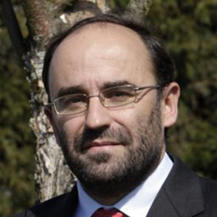
YO SOY porque tú eres. Esa, sería, más o menos, la traducción y a la vez concepto de esta vieja palabra o vocablo bantú que reproduce un proverbio africano. África, el gran continente, el que rebasa los cincuenta estados. Sobre el que afloran viejas cicatrices pero a la vez se depositan muchas esperanzas y que en 2050 tendrá más de 2.500 millones de habitantes y necesitará casi seis millones de educadores y casi cinco de sanitarios. Pero no queremos ver. Países que crecen a un ritmo per cápita impresionante, unos pocos, que en sus subsuelos y entrañas poseen una riqueza de minerales y piedras preciosas que supone e inflige también un castigo, corrupción, autoritarismo, miseria, pobreza y capitales extranjeros que posan sus intereses en tanto los mismos existan. «Una persona es una persona a través de los demás», esta sería la más hermosa de las definiciones de Ubuntu. Yo soy porque tú eres, porque nosotros somos. No hay probablemente filosofía humanista de mayor calado y sensibilidad hacia el otro partiendo del yo mismo.
Charles Tiayon:
"YO SOY porque tú eres. Esa, sería, más o menos, la traducción y a la vez concepto de esta vieja palabra o vocablo bantú que reproduce un proverbio africano. África, el gran continente, el que rebasa los cincuenta estados. Sobre el que afloran viejas cicatrices pero a la vez se depositan muchas esperanzas y que en 2050 tendrá más de 2.500 millones de habitantes y necesitará casi seis millones de educadores y casi cinco de sanitarios. Pero no queremos ver. Países que crecen a un ritmo per cápita impresionante, unos pocos, que en sus subsuelos y entrañas poseen una riqueza de minerales y piedras preciosas que supone e inflige también un castigo, corrupción, autoritarismo, miseria, pobreza y capitales extranjeros que posan sus intereses en tanto los mismos existan. «Una persona es una persona a través de los demás», esta sería la más hermosa de las definiciones de Ubuntu. Yo soy porque tú eres, porque nosotros somos. No hay probablemente filosofía humanista de mayor calado y sensibilidad hacia el otro partiendo del yo mismo..." #metaglossia mundus
"...it is imperative to lead from a place of wisdom. “Bothale ga bona ntlo ya jone” – wisdom has no boundaries. The African proverb, “wisdom is like a baobab tree, you cannot embrace it alone”, is a reminder that teamwork and wisdom are indispensable in leadership. Leadership requires a culture of continuous learning. This is how we create better and stronger leaders. As I stepped into my role as deputy vice-chancellor in 2021, I was encouraged to do a management course through the Saïd Business School at Oxford University...." #metaglossia mundus
Charles Tiayon:
"...it is imperative to lead from a place of wisdom. “Bothale ga bona ntlo ya jone” – wisdom has no boundaries. The African proverb, “wisdom is like a baobab tree, you cannot embrace it alone”, is a reminder that teamwork and wisdom are indispensable in leadership. Leadership requires a culture of continuous learning. This is how we create better and stronger leaders. As I stepped into my role as deputy vice-chancellor in 2021, I was encouraged to do a management course through the Saïd Business School at Oxford University...." #metaglossia mundus
As said earlier, I respect authorities and I respect change. I saw material about your mandate online that makes it plain to the public what you are to be recognized for, but may I ask, is that truly the case? A Ghanaian proverb says “The ruin of a nation begins in the homes of its people”. NCA, please permit me to ask a few questions with the hope of getting a response from them.
Charles Tiayon:
"As said earlier, I respect authorities and I respect change. I saw material about your mandate online that makes it plain to the public what you are to be recognized for, but may I ask, is that truly the case? A Ghanaian proverb says “The ruin of a nation begins in the homes of its people”. NCA, please permit me to ask a few questions with the hope of getting a response from them." #metaglossia mundus
The struggle against Apartheid in South Africa was long and bloody because the regime was supported by powerful countries like the US and United Kingdom. As the repression grew and men were targeted, women stepped forward with the famous Women’s March of 1956. In that march, the women adopted a South African proverb: Wathinta Abafazi Wathinta Imbokodo, which means: “You strike a woman; you strike a rock.”" #metaglossia mundus
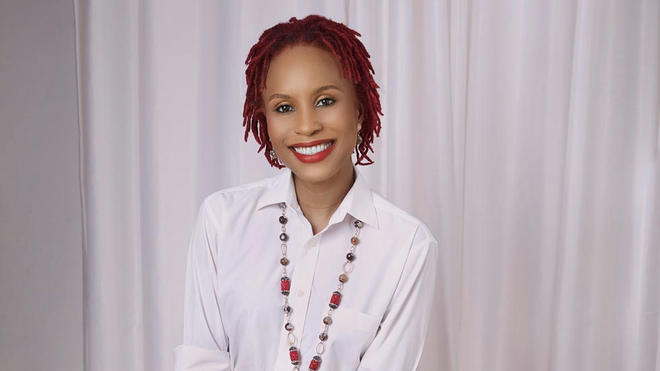
Meta's Global Head of Diversity and Inclusion Francesca Uriri offers expert tips to Black women looking to break into business or politics... Through a mix of programs, mentoring, content development, and targeted storytelling, LLA provides its community of women with the skills they need to thrive in their businesses, careers and leadership circles. The organization continues to work toward its goal of increasing the participation and representation of Black women in business and politics, and building a diverse and inclusive community of women equipped to lead Africa forward. "Like the Nigerian proverb says: 'There isn’t only one road that leads into the market.' By equipping them with the skills that they need to provide sustainable solutions to Africa’s most pressing socio-economic, and cultural challenges, they move from being passive participants in the affairs of the continent, to being active drivers and facilitators of change," shares Uriri. "This will directly increase and impact the level of participation and representation we see not only in the fields of business and politics, but also in the workplace."
Charles Tiayon:
"Meta's Global Head of Diversity and Inclusion Francesca Uriri offers expert tips to Black women looking to break into business or politics... Through a mix of programs, mentoring, content development, and targeted storytelling, LLA provides its community of women with the skills they need to thrive in their businesses, careers and leadership circles. The organization continues to work toward its goal of increasing the participation and representation of Black women in business and politics, and building a diverse and inclusive community of women equipped to lead Africa forward. "Like the Nigerian proverb says: 'There isn’t only one road that leads into the market.' By equipping them with the skills that they need to provide sustainable solutions to Africa’s most pressing socio-economic, and cultural challenges, they move from being passive participants in the affairs of the continent, to being active drivers and facilitators of change," shares Uriri. "This will directly increase and impact the level of participation and representation we see not only in the fields of business and politics, but also in the workplace."" #metaglossia mundus
Emezi: It comes from an Igbo proverb, ‘All freshwater comes out of the mouth of a python.’ It’s another way of saying that all life comes from the deity Ala, whose avatar is the python.
Charles Tiayon:
"Emezi: It comes from an Igbo proverb, ‘All freshwater comes out of the mouth of a python.’ It’s another way of saying that all life comes from the deity Ala, whose avatar is the python." #metaglossia mundus
President Buhari said as a firm supporter of the teaching of history as a stand-alone subject in all basic and secondary schools across the country, he valued the support of individuals and leaders in the discipline like Aderinto and other organisations in improving the quality of learning in the education sector. The president hailed Aderinto for being a worthy ambassador of the country, adding that his commitment to a discipline that reminded Nigerians of an Igbo proverb that says: “A man who cannot tell where the rain began to beat him cannot know where he dried his body.”
Charles Tiayon:
''...President Buhari said as a firm supporter of the teaching of history as a stand-alone subject in all basic and secondary schools across the country, he valued the support of individuals and leaders in the discipline like Aderinto and other organisations in improving the quality of learning in the education sector. The president hailed Aderinto for being a worthy ambassador of the country, adding that his commitment to a discipline that reminded Nigerians of an Igbo proverb that says: “A man who cannot tell where the rain began to beat him cannot know where he dried his body.” ..." #metaglossia mundus
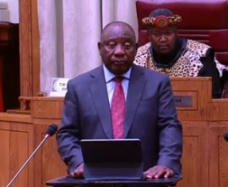
The President told the House that it takes office at a time when the country is facing many challenges. He said the challenges include poverty, unemployment, inequality, the rising cost of living, the impact of the COVID-19 pandemic and devastating floods, and the scourge of gender-based violence and femicide.
“While these challenges may at times appear insurmountable and overwhelming, we must take to heart the Guinean proverb which says: ‘No matter how long the winter, spring is sure to follow'.
“We see this House as an important platform to address these challenges, now and into the future. We pledge to work with you and support you in leading national recovery and reconstruction, and to build a South Africa that leaves no-one behind,” the President said.
Over the years, President Ramaphosa said he has greatly appreciated and benefited from the wise counsel of the House. He pleaded with traditional leaders to play their part in fighting the scourge of gender-based violence and femicide, which shows no signs of abating.
“As leaders, as people of standing in our communities, we have to play our part. We should make it impossible for perpetrators to live, work and socialise amongst us. We must shape the way boys and girls relate with each other. Let us nurture young men and women who see each other as equals and as partners in development and growth.
“Those of us who are men ought to be found at the forefront of this fight, as we confront toxic masculinity and patriarchal practices that seek to oppress and supress women,” he said.
The President took the opportunity to recognise the valuable contributions of progressive men and women. These include the National Men’s Parliament programme, of which the House is a partner, alongside Parliament and the SANAC Men’s Sector. He further called for the support of programmes of this nature to drive collective action against patriarchy and all that is represents.
Charles Tiayon:
"The President told the House that it takes office at a time when the country is facing many challenges. He said the challenges include poverty, unemployment, inequality, the rising cost of living, the impact of the COVID-19 pandemic and devastating floods, and the scourge of gender-based violence and femicide.
“While these challenges may at times appear insurmountable and overwhelming, we must take to heart the Guinean proverb which says: ‘No matter how long the winter, spring is sure to follow'.
“We see this House as an important platform to address these challenges, now and into the future. We pledge to work with you and support you in leading national recovery and reconstruction, and to build a South Africa that leaves no-one behind,” the President said.
Over the years, President Ramaphosa said he has greatly appreciated and benefited from the wise counsel of the House. He pleaded with traditional leaders to play their part in fighting the scourge of gender-based violence and femicide, which shows no signs of abating.
“As leaders, as people of standing in our communities, we have to play our part. We should make it impossible for perpetrators to live, work and socialise amongst us. We must shape the way boys and girls relate with each other. Let us nurture young men and women who see each other as equals and as partners in development and growth.
“Those of us who are men ought to be found at the forefront of this fight, as we confront toxic masculinity and patriarchal practices that seek to oppress and supress women,” he said.
The President took the opportunity to recognise the valuable contributions of progressive men and women. These include the National Men’s Parliament programme, of which the House is a partner, alongside Parliament and the SANAC Men’s Sector. He further called for the support of programmes of this nature to drive collective action against patriarchy and all that is represents." #metaglossia mundus
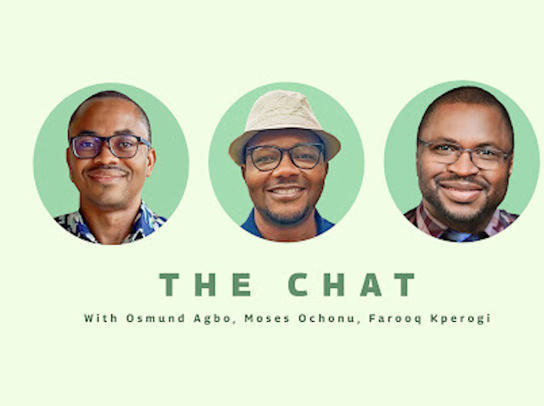
In the face of existential challenges facing Nigeria and leading up to the 2023 presidential election, the ensuing conversation arose among three Nigerians in the Diaspora on the way forward for a nation in crisis. Osmund: Each time I think about Nigeria’s 2023 election, which by the way is just a mere 14 days away, what comes to mind is the Igbo proverb: “Echi di ime, anyi amaro ihe oga amu.” This proverb speaks to the unpredictability of the outcome of a pregnancy and that the most a husband could do is to anxiously await the day of delivery to see the fruit that the divine brings forth. Though a couple may sometimes show preference for a particular sex over another, depending on the pre-existing family dynamics, the most important prayer has always been to birth a healthy child, naturally prepared to face the harsh realities of this troubled world. But at this point and with all the issues staring us in the face, I worry if 2023 will ever give Nigeria a healthy child or just end up with a stillbirth. Worse still, I fear it might become the year mother Nigeria hemorrhages to death, peripartum.
Charles Tiayon:
"Each time I think about Nigeria’s 2023 election, which by the way is just a mere 14 days away, what comes to mind is the Igbo proverb: “Echi di ime, anyi amaro ihe oga amu.” This proverb speaks to the unpredictability of the outcome of a pregnancy and that the most a husband could do is to anxiously await the day of delivery to see the fruit that the divine brings forth. Though a couple may sometimes show preference for a particular sex over another, depending on the pre-existing family dynamics, the most important prayer has always been to birth a healthy child, naturally prepared to face the harsh realities of this troubled world. But at this point and with all the issues staring us in the face, I worry if 2023 will ever give Nigeria a healthy child or just end up with a stillbirth. Worse still, I fear it might become the year mother Nigeria hemorrhages to death, peripartum." #metaglossia mundus
Whenever I witness the sad plight of the elderly in Zimbabwe, the adage, ‘there's no rest for the weary' always comes to mind.
Having gone to the local Kwekwe branch of the state-owned POSB (People's Own Savings Bank) nearly daily, in the past week, in order to assist my elderly mother withdraw her social security payout - I could not help concluding that NSSA (National Social Security Authority) somehow derived some depraved pleasure from pensioners' continued suffering.
Charles Tiayon:
"Whenever I witness the sad plight of the elderly in Zimbabwe, the adage, ‘there's no rest for the weary' always comes to mind.
Having gone to the local Kwekwe branch of the state-owned POSB (People's Own Savings Bank) nearly daily, in the past week, in order to assist my elderly mother withdraw her social security payout - I could not help concluding that NSSA (National Social Security Authority) somehow derived some depraved pleasure from pensioners' continued suffering." #metaglossia mundus
You are one of the erring members. Have you forgotten how you and Atiku destroyed PDP and Jonathan's government? If Wike had joined you people would you have met a revived and formidable PDP today? An igbo proverb says `` HE WHO FETCHES ANTS INFESTED FIREWOODS INVITES LIZARDS TO HIS HOUSE. So deal with it. As it becomes obvious that there is no hope for victory with entire South East out of your bag.
Charles Tiayon:
"You are one of the erring members. Have you forgotten how you and Atiku destroyed PDP and Jonathan's government? If Wike had joined you people would you have met a revived and formidable PDP today? An igbo proverb says `` HE WHO FETCHES ANTS INFESTED FIREWOODS INVITES LIZARDS TO HIS HOUSE. So deal with it. As it becomes obvious that there is no hope for victory with entire South East out of your bag." #metaglossia mundus
Addis Ababa – Millions around the world continue to suffer, up to death, without access to health services for multiple reasons. This situation is worse in low-income countries, such as Ethiopia. Patients, especially those living in rural areas, are not getting the treatment they deserve due to factors such as lack of money to cover health expenses, long distances to health centers, bureaucracy, repeated exposures to long and never-ending waiting lines and language barrier. To alleviate the reality of expensive healthcare costs on patients, a charity organization, Health and Hope for the Generation, has launched the Lommi Projects, Ethiopia’s first medically specialized crowdfunding site, which is inspired by the Ethiopian proverb – ሃምሳ ሎሚ ለአንድ ሰዉ ሸክሙ፣ ለሃምሳ ሰው ጌጡ ነው – loosely translated: “50 lemons are a burden for one person, a jewel for fifty people”, as its slogan, which went on operational as of 05 October 2022.
Charles Tiayon:
"Addis Ababa – Millions around the world continue to suffer, up to death, without access to health services for multiple reasons. This situation is worse in low-income countries, such as Ethiopia. Patients, especially those living in rural areas, are not getting the treatment they deserve due to factors such as lack of money to cover health expenses, long distances to health centers, bureaucracy, repeated exposures to long and never-ending waiting lines and language barrier. To alleviate the reality of expensive healthcare costs on patients, a charity organization, Health and Hope for the Generation, has launched the Lommi Projects, Ethiopia’s first medically specialized crowdfunding site, which is inspired by the Ethiopian proverb – ሃምሳ ሎሚ ለአንድ ሰዉ ሸክሙ፣ ለሃምሳ ሰው ጌጡ ነው – loosely translated: “50 lemons are a burden for one person, a jewel for fifty people”, as its slogan, which went on operational as of 05 October 2022." #metaglossia mundus

Identifying my purpose not to talk of achieving it has been a difficult one over the years. Thankfully, it was different this year. ... Have we been able to achieve the goals we set for ourselves at the beginning of the year, why were we not able to achieve these goals, if goals were achieved, what has helped us achieve them? These thoughts are worth thinking about, as a popular Igbo proverb says, “he who fails to look out for what made him fall, will fall again”. So, this ending time, calls for a thinking time. A time to peruse the activities we have carried out so far and how they have aligned with our purpose, which according to Merriam-Webster Dictionary, is defined, as something set up as an objective or end to be attained. Simply, “a resolution”. Another question for thought is, do we have a purpose? The purpose again, according to Oxford English Dictionary, is the reason for which something is done or which something exists. Simply, the “why”, for the mission or goals we have set. What were our resolutions for the ending year and why did we make them? Answers to these questions are key to living a purpose-driven life in the coming year." #metaglossia mundus
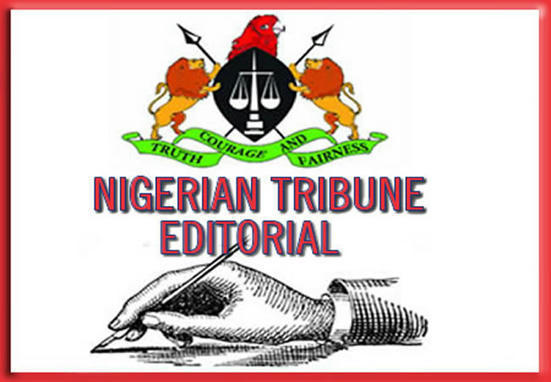
As a Nigerian proverb says, a lie may be in motion for 20 years, but truth will catch up with it one day. Julie, a student of the Alex Ekwueme Federal University, Ebonyi, had gone to a shop located at Thinkers Corner, Enugu, a few poles away from her residence to learn hairdressing in March 2021, but her life was about to change. The landlord of her boss, who coincidentally had her shop next to the hairdressing salon, was her real mother. Because of the striking resemblance between Julie and Mrs Okwudili, visitors to the shops began asking probing questions. And Mrs Okwudili was struck by the fact that Julie had the same kind of eye defect as her son. Over to Mrs Okwudili: “On July 7, 2022, the girl came to our house herself and we went for the DNA test. In September, two months after the test, my husband called me in the night that the DNA test was out. He said ‘I, Okwudili Michael, am the biological father of Juliet. So Juliet Okwudili is our biological daughter, 99.99 per cent.’”
https://tribuneonlineng.com/the-amazing-story-of-citizen-julie/
Charles Tiayon:
"As a Nigerian proverb says, a lie may be in motion for 20 years, but truth will catch up with it one day. Julie, a student of the Alex Ekwueme Federal University, Ebonyi, had gone to a shop located at Thinkers Corner, Enugu, a few poles away from her residence to learn hairdressing in March 2021, but her life was about to change. The landlord of her boss, who coincidentally had her shop next to the hairdressing salon, was her real mother. Because of the striking resemblance between Julie and Mrs Okwudili, visitors to the shops began asking probing questions. And Mrs Okwudili was struck by the fact that Julie had the same kind of eye defect as her son. Over to Mrs Okwudili: “On July 7, 2022, the girl came to our house herself and we went for the DNA test. In September, two months after the test, my husband called me in the night that the DNA test was out. He said ‘I, Okwudili Michael, am the biological father of Juliet. So Juliet Okwudili is our biological daughter, 99.99 per cent.’”
https://tribuneonlineng.com/the-amazing-story-of-citizen-julie";
|
Scoop it Creator
Charles Tiayon
|







